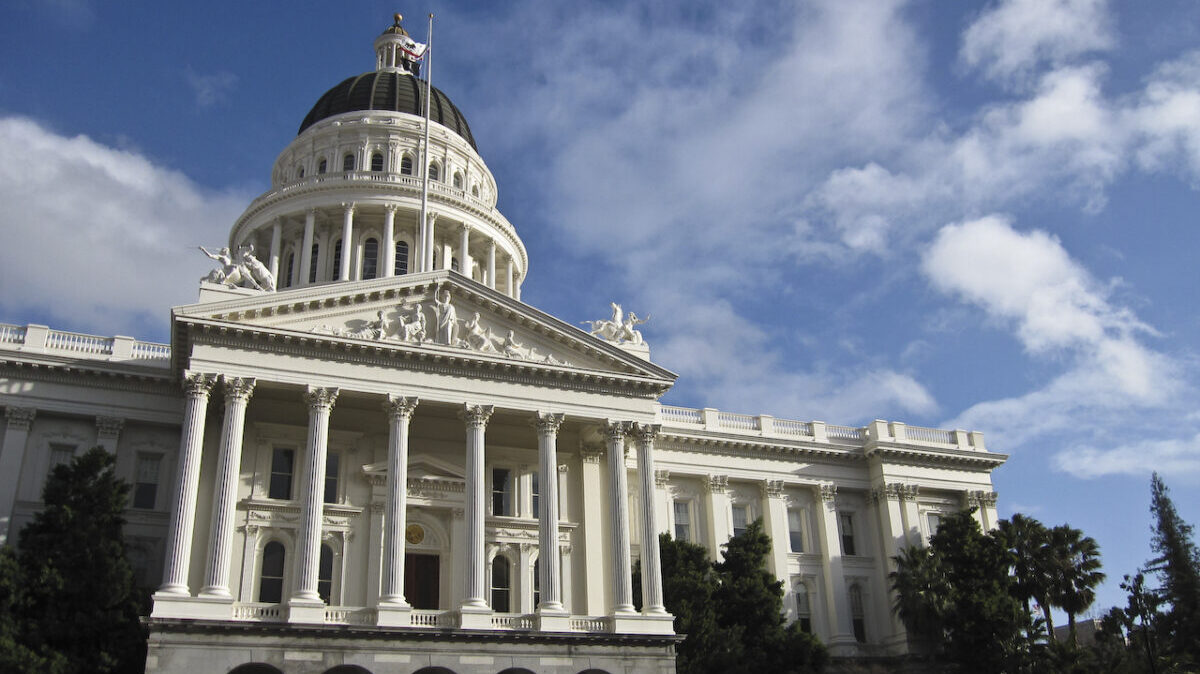


California lawmakers are once again leading the charge — not toward progress, but toward repression. Their latest move, Senate Bill 771 (SB-771), is being packaged as a bold stand against “hate” on social media. In reality, it’s a direct assault on the free expression and constitutionally protected speech of ministries, minority groups, and faith-based organizations.
The bill would force Big Tech to remove content that could be interpreted as “harassment” or “intimidation” based on race, gender identity, sexual orientation, and more — or face financially devastating lawsuits.
If Gov. Gavin Newsom signs this bill into law as expected, it will become one of the most dangerous speech-restricting laws in the country. Cloaked in the language of civil rights, SB-771 is built to punish dissent from progressive orthodoxy.
The target is anyone who dares to speak publicly about values or perspectives that conflict with the state’s ever-expanding list of protected identities. In practice, this means community groups sharing discussions on traditional family structures, cultural views on gender roles, or advocacy for certain social issues may find themselves silenced — not by law enforcement, but by tech giants eager to avoid legal risk.
The bills says:
California law prohibits all persons and entities, including corporations, from engaging in, aiding, abetting, or conspiring to commit acts of violence, intimidation, or coercion based on race, religion, gender, sexual orientation, immigration status, or other protected characteristics.
3273.73. (a) A social media platform that violates Section 51.7, 51.9, 52, or 52.1 through its algorithms that relay content to users or aids, abets, acts in concert, or conspires in a violation of any of those sections, or is a joint tortfeasor in a violation of any of those sections, shall, in addition to any other remedy, be liable to a prevailing plaintiff for a civil penalty for each violation sufficient to deter future violations but not to exceed the following:
(1) For an intentional, knowing, or willful violation, a civil penalty of up to one million dollars
(2) For a reckless violation, a civil penalty of up to five hundred thousand dollars.
This language may appear just, but its sweeping terms — “intimidation,” “coercion,” even “aiding” — are dangerously vague. In the hands of ideologically motivated actors, they can be weaponized to silence constitutionally protected discourse under the guise of enforcing civil rights.
That’s the chilling brilliance of SB-771: it outsources censorship to the private sector under threat of state-enforced financial ruin. The law doesn’t need to directly ban speech — it just makes the cost of hosting it too high for Big Tech to tolerate. This will especially impact small ministries, minority-led organizations, and faith-based nonprofits with limited legal or technical resources. For them, one flagged post — perhaps a cultural reference taken out of context — could mean being shadow-banned or deplatformed altogether.
Throttling Free Speech
This isn’t a theoretical concern. Social media algorithms have already throttled voices from minority communities and advocacy groups for expressing views that, not long ago, were mainstream. Organizations defending certain social norms, supporting traditional values, or advocating for personal freedoms are increasingly finding their content buried — or outright deleted. SB-771 would institutionalize this trend and turn social media companies into tools of government-endorsed censorship.
Of course, harassment and threats should not be tolerated anywhere, online or offline. But that’s not what this bill is really about. SB-771 uses vague, subjective language to redefine “intimidation” so broadly that a community leader discussing cultural traditions or an organization sharing personal stories about lifestyle changes could fall under its scope. Activists need only claim they felt “threatened” to trigger a legal nightmare — and the platforms will act first and ask questions never.
First Amendment Rights
This legal overreach doesn’t just violate common sense; it likely violates the Constitution. In NetChoice v. Paxton, the courts affirmed that social media companies have First Amendment rights, just like publishers. In addition, under Section 230 of the Communications Decency Act, platforms are protected from liability for user-generated content — so long as they moderate in good faith. SB-771 flips that on its head, punishing platforms unless they over-police user content.
But more broadly, this is an issue of access to information and ideas. In an age where a significant portion of people — especially the young — encounter diverse perspectives through digital platforms, limiting online expression means limiting open dialogue. For many community organizations, especially in post-Covid California, their digital presence is a crucial means of connection and sharing. SB-771 threatens to turn that into a minefield, where every word must be pre-approved by the state’s ideological censors.
The left’s tactics are subtle. Instead of direct bans, they close digital doors. Instead of suppressing publications, they throttle content. Instead of silencing speakers, they adjust algorithms. But the result is the same: diverse viewpoints are suppressed, and dominant narratives are elevated in their place.
Now is the time for action. America’s community leaders, advocates, and concerned citizens must not stay silent. This is not just about free speech; it’s about whether our government can coerce platforms into becoming the thought police for a particular ideology. If Americans fail to push back, SB-771 will become the model for similar laws nationwide.
SB-771 isn’t just an attack on free speech in California; it’s a blueprint for state-coerced censorship. It threatens to turn digital platforms into ideological enforcers, punishing those who hold traditional, faith-based, or culturally diverse viewpoints. Gov. Newsom should veto this bill and protect the rights of all Californians to speak freely, without fear or favor. Otherwise, SB 771 will become the template for silencing dissent across the nation.
